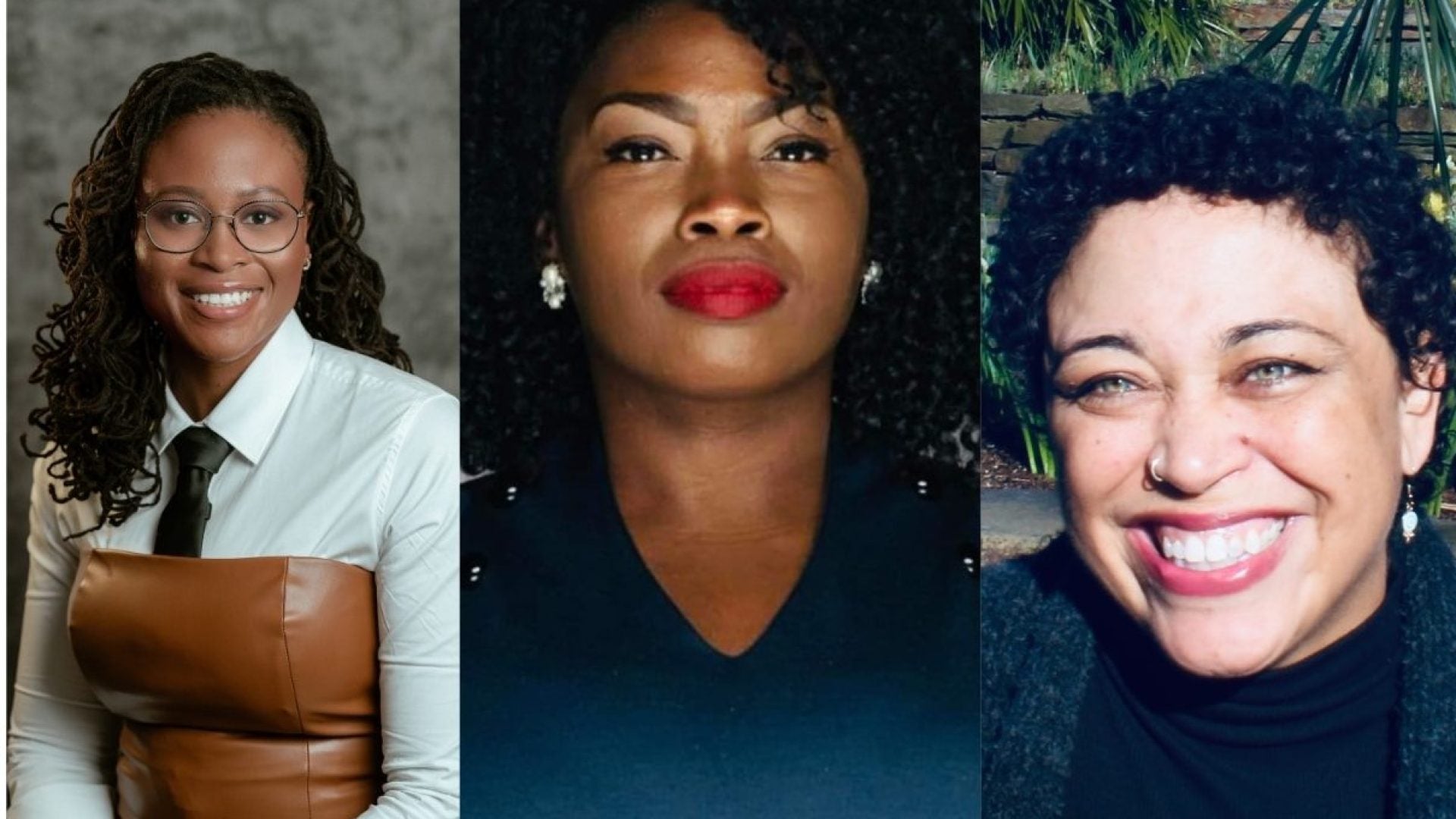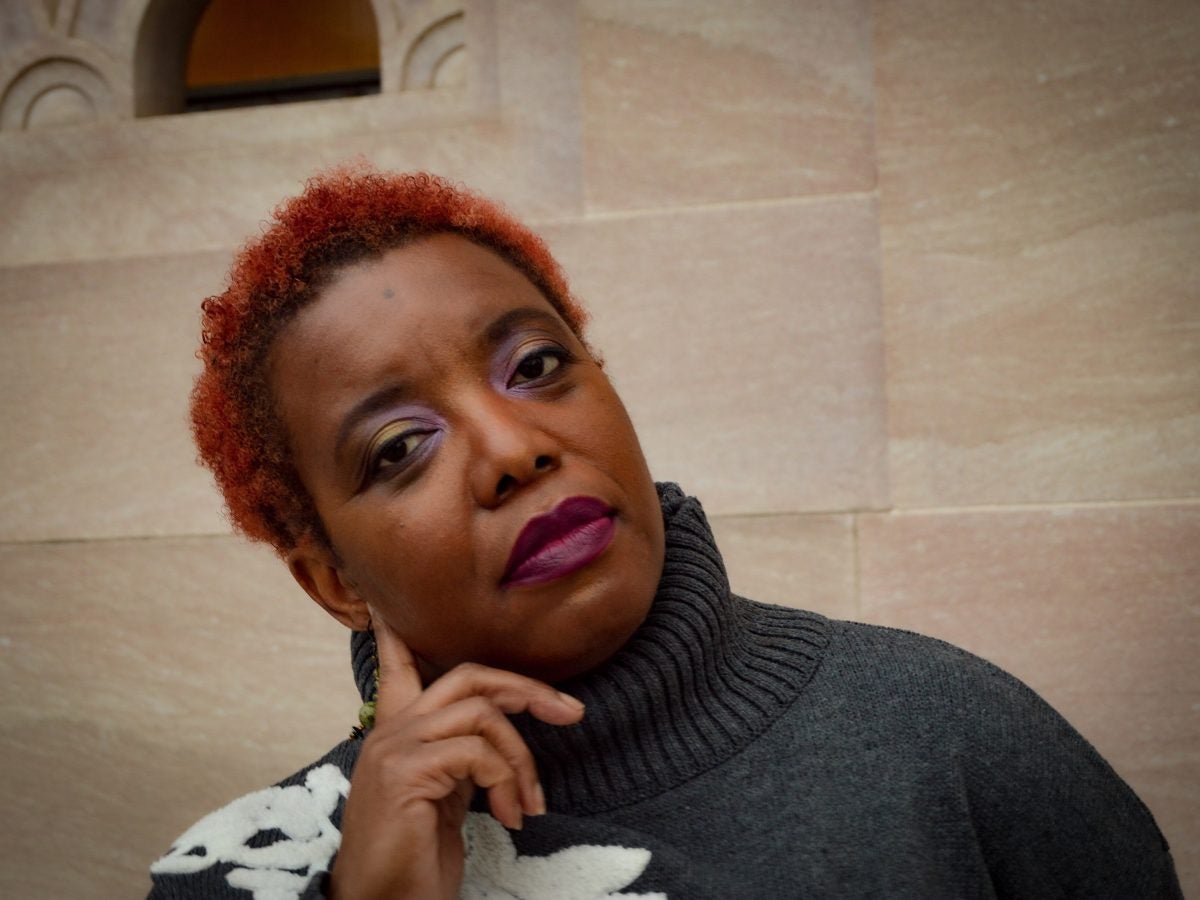From the top of the Democratic presidential ticket to the grassroots workers on the ground, Black women are once again doing their part to expand voting rights, ensure people of color have their voices heard, and protect democracy.
In a highly consequential election, with Kamala Harris poised to make history if elected, voter suppression efforts are playing out across the country, particularly in states like Georgia that were once covered by the 1965 Voting Rights Act.Because of their history of discrimination, these states have to submit any election law changes for federal approval before implementation. However, voter restrictions have increased after the U.S. Supreme Court weakened the Voting Rights Act in 2013 by ending the preclearance provision. Those GOP-led restrictions have only ramped up since Donald Trump’s Big Lie claiming he won the 2020 presidential election that he lost fair and square to President Joe Biden.
Misinformation in service of that lie has been widely disseminated, and Black people have paid the price. In Georgia, for example, poll workers Wandrea “Shaye” Moss and her mother, Ruby Freeman, were the targets of a conspiracy theory made up by Donald Trump’s lawyer at the time, Rudy Giuliani, that claimed that Moss and Freeman had pulled fake ballots from suitcases under tables at a ballot-counting center to rig the election in favor of Biden, as reported by Reuters. As a result, Moss and Freeman became the targets of racist and violent threats.
ESSENCE spoke to a few of the Black women playing pivotal roles in pushing back against voter suppression tactics in four battleground states.
Marcia Johnson has been fighting for voters’ rights since the 2000 presidential election when the controversy over a mere 537 votes in Florida led to the US Supreme Court stepping in and halting a recount resulting in George W. Bush’s victory in the race. Johnson knew she never wanted to see that happen again. As Co-director of the Lawyers’ Committee’s Voting Rights Project since 2004, Marcia Johnson has continued her fight for voter protection. Following record turnout in the 2020 election, new restrictions were imposed. “They make it harder to vote by absentee, harder to access drop boxes, added I.D. requirements for mail voting, and make it easier to challenge voter eligibility and remove election officials,” Johnson explained. The Lawyers’ Committee for Civil Rights has sued on behalf of the NAACP to overturn the bill enabling these changes.
Johnson is also fighting misinformation in the voting process, such as false claims that undocumented immigrants are voting. “Based on this false narrative… citizens in Georgia and election officials have become emboldened in challenging voter eligibility. Usually, the voters who are challenged are voters of color,” she said. This misinformation suppresses voters of color and undermines trust in election outcomes.
A key part of the organization’s fight against misinformation is its Election Protection program, which includes the nonpartisan Election Protection hotline, 866-OUR-VOTE. The hotline, in partnership with 300 local, state and national groups, helps voters with everything from registration to addressing challenges at the polls. Available in multiple languages, it can be accessed by text and social media.
Given the harassment of poll workers like Moss and Freeman after the 2020 election, the program is engaging election officials to ensure worker safety. “It’s the responsibility of election officials to make sure that the poll workers are protected. And we’re having those conversations with election officials to make sure that that is exactly what they’re doing,” Johnson said. Amid these efforts, Johnson continues to advocate for fully reinstating the Voting Rights Act. “I’ve been doing this work for 20 years now, and what has sustained me is the community that I’m a part of… a community that has a lot of Black women who are answering the call to make our democracy what it needs to be,”she added.
As the Executive Director of Pennsylvania Voice, Salewa Ogunmefun oversees the four pillars of the organization’s work: civic engagement, voting rights and election administration, reflective democracy and capacity building. Pennsylvania is facing more barriers to voter participation and also political representation. Ogunmefun explained, “the lines are drawn in Pennsylvania… in a way that disenfranchises voters before they ever headed to the ballot box, which is why I was really proud to work with partners in a campaign in the last redistricting cycle to actually end up winning what is now the most racially equitable State House maps in Pennsylvania history.” Fair redistricting is key to getting representation that reflects the community, and Ogunmefun looks forward to duplicating the process for the State Senate maps.
Another aspect of the work is civic engagement. It does so by partnering with more than 60 community organizations to teach people the connection between what they see in their own lives, the power structures and decision makers that create those conditions, and how they, as voters, can affect that. Ensuring their vote counts is critical once people are engaged in the political process.
While mail-in voting is allowed in Pennsylvania (and has proved to be much more popular with Democrats than Republicans—in the 2020 election, for example, Democrats requested 846,000 more mail-in ballots than Republicans),conservative efforts to suppress this form of voting has resulted in something as simple as a ballot that doesn’t have a date written on the outer envelope being invalidated. Counties aren’t constitutionally required to let voters know that if they come in and put a date on their ballot, it will be counted. So, while the court case the ACLU has filed to have ballots with missing dates counted is reviewed, Pennsylvania Voice has also been working to either convince counties to reach out to voters themselves or provide a list of those voters to Pennsylvania Voice so they can do it on their behalf. “I think it’s going to eliminate the amount of ballots that didn’t get to be counted [like] in 2020,” said Ogunmefun.
This type of “plan B” strategy, as Ogunmefun calls it, reflects the creativity and flexibility needed to match equally wily attempts to disenfranchise voters of color. Reflecting on the power that Black women have to affect change, Ogunmefun remarked, “I think that this year, with a Black woman on top of the presidential ticket, and BIPOC women leading the election protection coalition and women of color showing up in droves to register to vote, that truth is just more visible than ever. And I’m excited that we can finally get an opportunity to make that known in a way that is undeniable.”
As Senior Campaign Manager for All Voting is Local Wisconsin, Bianca Shaw works to “dismantle barriers to the ballot” covering four areas: expanding voter access, fighting disinformation, engaging with community partners to safeguard voting rights and ending election sabotage.
Wisconsin has seen its share of voter suppression tactics. For example, The Wisconsin Supreme Court deemed the use of drop boxes legal to submit absentee ballots, but that didn’t stop Wausau, Wisconsin mayor Doug Diny from removing the drop box in his city, which he didn’t have the authority to do.
The drop box was recently returned to its location and All Voting is Local is marshaling the forces of the community to demand the availability of drop boxes in communities that want them. “There’s rallies going on across the state that we’re connecting with the organizations from that community, voters from that community, residents from that community, and making sure that the voices are loud and heard. Because the intersectionality of organizing, advocacy and activism, they all go together, and we move so much faster together,” said Shaw.
At least 63 other Wisconsin municipalities have banned or opted out of dropbox use as reported by Votebeat. The opposition is coming from conservatives who believe the misinformation that drop boxes facilitate widespread voter fraud—without proof that voter fraud is actually happening. A study of the 2020 election by political conservatives called “Lost Not Stolen” found no evidence of fraud. To combat misinformation, All Voting is Local participates in the nationwide hotline 866-OUR-VOTE and Wisconsin residents in particular can go to https://myvote.wi.gov.
Efforts to address alleged voter fraud will be on the ballot in Wisconsin this November. A proposed amendment would change the constitution’s wording from “every” U.S. citizen 18 or older can vote to “only” U.S. citizens 18 or older can vote in elections. While federal law already forbids noncitizens from voting, this amendment would extend that ban to local elections. Shaw warns that changing just one word—”only”—could disenfranchise many, including citizens lacking proper ID and would prohibit legal permanent residents from having a say in local governance.
As Executive Director of Blueprint North Carolina, Serena Sebring has the critical knowledge of “what it would take to protect people at the polls.” Blueprint NC is committed to creating an anti-racist and inclusive democracy where everyone’s vote counts. Through its “people power” partnership with 102 organizations, Sebring believes it is well-positioned to increase voter participation. However, barriers to this goal exist, and they have parallels in United States history.
North Carolina was the site of the 1898 Wilmington Massacre, where angry white mobs destroyed a multi-racial democracy in which Black people were thriving. Once again, just as a multi-racial inclusive democracy is on the rise statewide, renewed efforts at disenfranchisement and oppression have increased. “We know that there are extremists in many pockets of this state preparing to use good old fashioned intimidation to suppress that,” Sebring said. “I think the opportunity is before us to get out ahead and say that this is not an election that will be won or lost based on political violence or intimidation, but instead that all of us are committed to doing what it takes to de-escalate, to intervene, so that the voice of North Carolinians can, in this moment, be heard in a way that it wasn’t in 1898.”
North Carolinians, particularly those in the eastern part of the state known as the Black Belt for its fertile soil and large Black population, are concerned that their votes won’t count. Sebring owes this to several reasons: the North Carolina General Assembly’s redistricting which has tried to dilute the Black vote; uncertainty around voter ID laws that were implemented since the last election means judges at 100 different county boards of election will determine if a voter’s ID is valid and, a new rule that allows partisan poll watchers in the voting booth. Sebring said of the latter “we’re really concerned about straight up physical intimidation happening in polling places.”
In response, Blueprint NC will deploy its statewide election protection table, which now has over 40 partners to protect the vote from litigation to poll presence. Those protectors will also be physically present at the polls to document what happens with regard to voter I.D. decisions and “prepare to intervene in the interest of making sure that everybody who wants to cast a vote this year in North Carolina will have the support to do that,” said Sebrin.
Working to protect voting rights for people of color in a divided country filled with the threat of violence is deeply valuable–but it doesn’t come without cost to the Black women and men doing it. “There’s a kind of vulnerability that goes along with Black leadership in this moment that I think we should not shy away from talking about,” said Sebring.” Iit is a sacrifice at all levels for folks who are in vulnerable leadership or rather invisible leadership in this moment. And I think it’s important that people are aware of that and get behind and get up underneath the leadership that they believe in, in this time more than ever. I think we need to be vocal about protecting Black leadership right now.”





